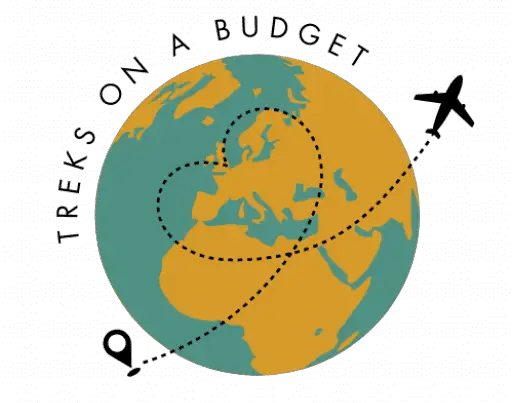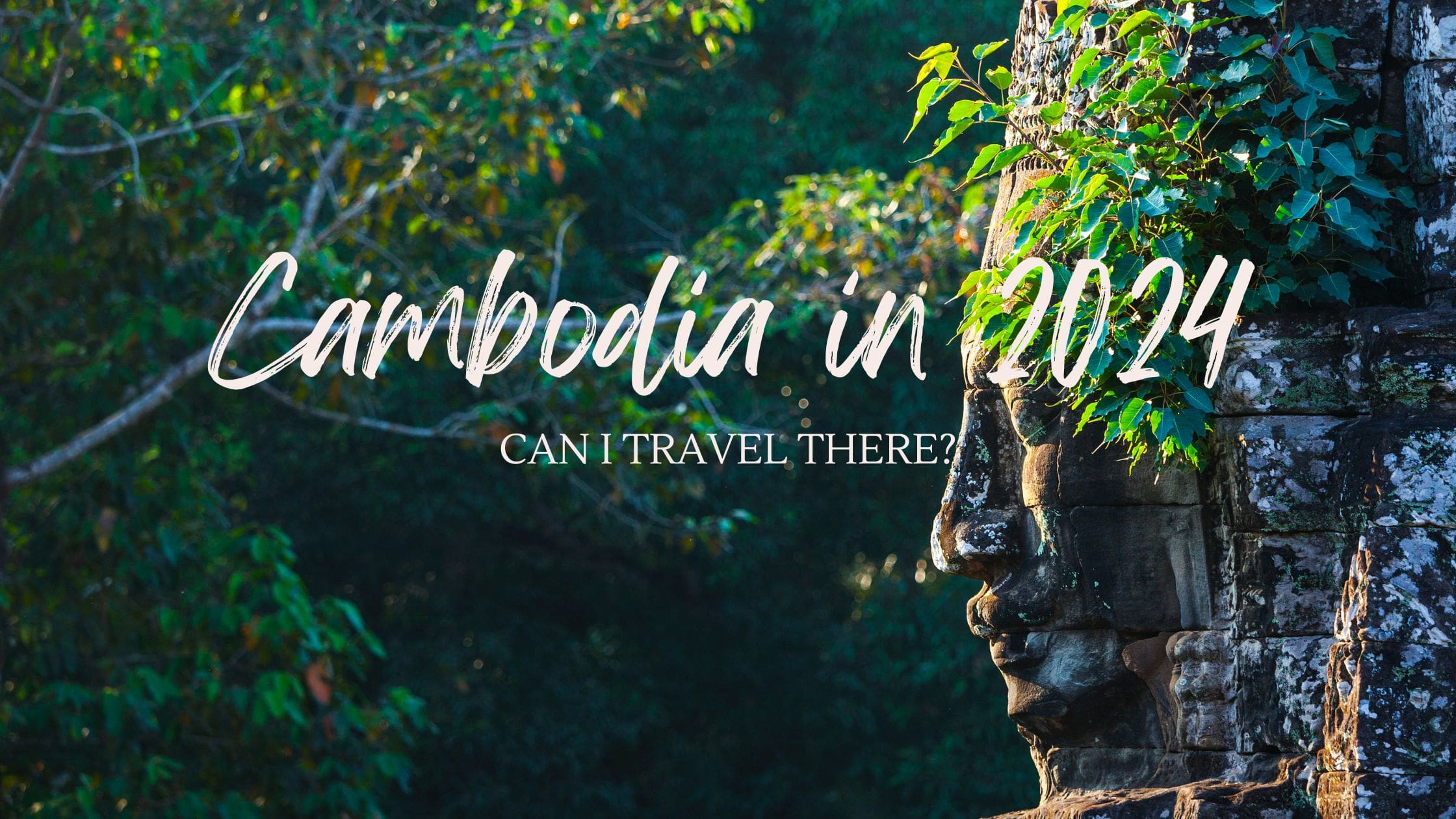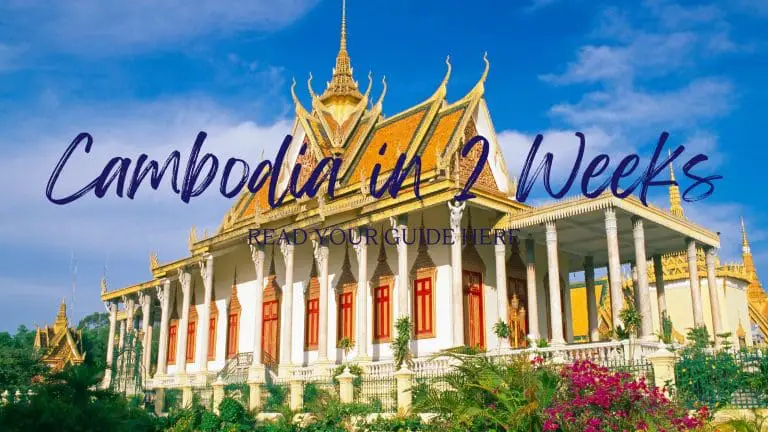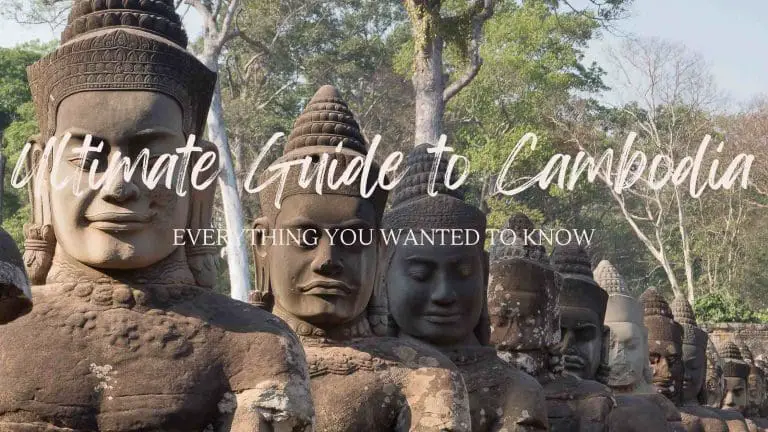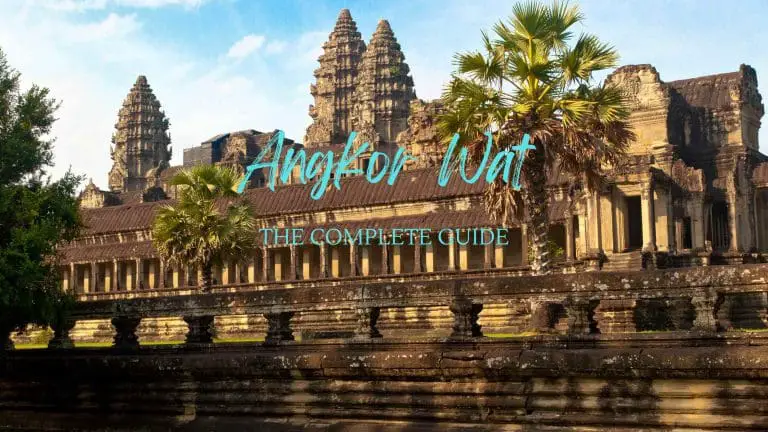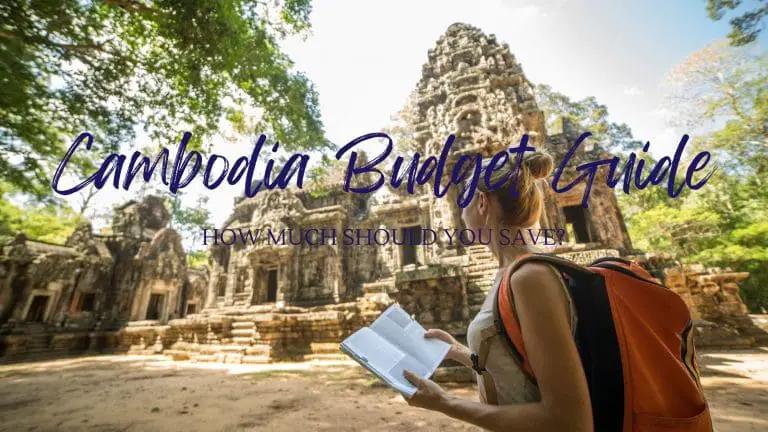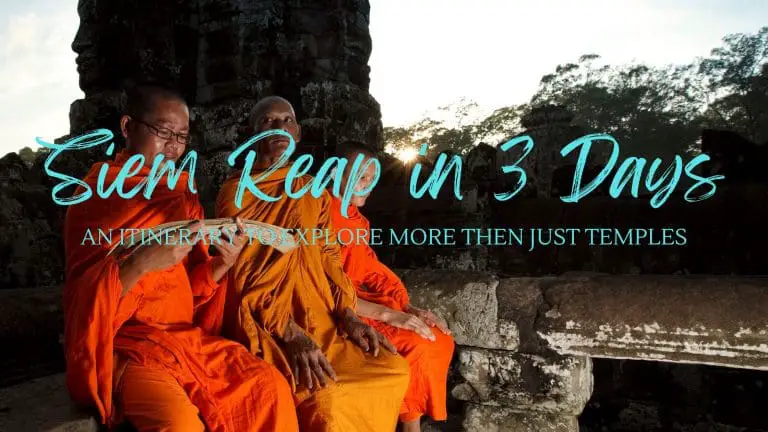Can I Travel to Cambodia Right Now: Your 2024 Complete Guide
Estimated reading time: 15 minutes
Planning a trip to Cambodia? You’re in luck! Travel to Cambodia is currently possible, allowing tourists to explore its rich culture and stunning landscapes. From the majestic Angkor Wat to bustling markets in Phnom Penh, Cambodia offers a unique blend of history and modernity. Before packing your bags, it’s crucial to stay informed about the latest entry requirements and health guidelines to ensure a smooth journey.
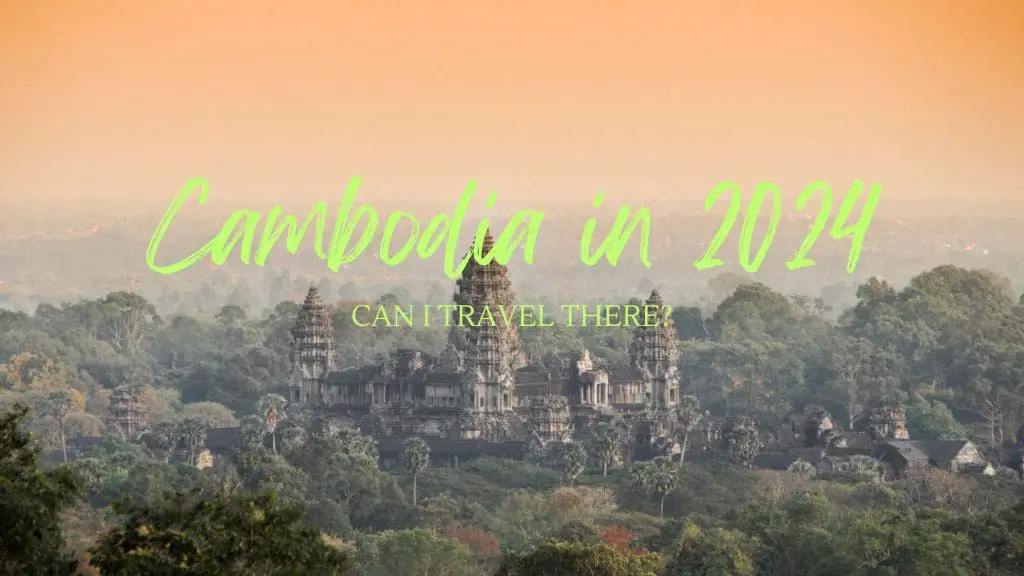
Whether you’re dreaming of witnessing the sunrise at Angkor Wat or sampling local cuisine, understanding the current travel guidelines is essential. This guide aims to provide you with the latest information on travel to Cambodia, focusing on entry requirements, health and safety protocols, and practical travel tips. Let’s make your Cambodian adventure both memorable and safe.
Table of contents
- Essential Entry Requirements and Visa Information
- Safety and Security Measures in Cambodia
- Health and Medical Information for Travelers
- Legal and Cultural Considerations
- Practical Travel Information and Tips
- Cultural Insights and Local Experiences
- Preparing for Your Trip
- Addressing Common Concerns and FAQs
- Adventure and Activities in Cambodia
- Returning Home: Exit Requirements and Procedures
- Final Thoughts: Making the Most of Your Cambodian Journey
Essential Entry Requirements and Visa Information
The Cambodian authorities have specific requirements for entering the country. Tourist visas and business visas are available through the Cambodian Embassy or upon arrival at airports in Phnom Penh and select land border crossings. The Cambodian government mandates that all visas are valid from the date of entry into Cambodia. It’s essential to have your travel documents in order and check the latest entry rules with the Royal Embassy of Cambodia.
Understanding Cambodia’s Current Entry and Exit Regulations
For international travelers looking to explore Cambodia, staying updated on the latest entry and exit regulations is vital. When leaving Cambodia, ensure you have all necessary travel documents. A travel agency can help simplify this process. Proof of vaccination is often required, and the embassy in Phnom Penh can provide the most current information.
Visa Requirements for US Citizens
US citizens planning their arrival in Cambodia have the option to obtain a visa on arrival. This convenient process makes it easier to begin exploring Cambodia’s wonders without delays. Ensure you meet all requirements for a hassle-free experience upon arrival in Cambodia.
Visa On Arrival and E-Visa Options
Upon arrival in Cambodia, travelers have the option of obtaining a visa on arrival or applying for an e-visa beforehand. Both options are designed to streamline the entry process, allowing more time to enjoy Cambodia’s attractions. Decide which option suits your travel plans best for a smooth start to your adventure.
Overstaying Your Visa in Cambodia: What You Need to Know
It’s important not to overstay your visa in Cambodia. Overstaying can lead to fines and complications with Cambodian immigration officials. Always keep track of your visa’s expiration date to avoid any issues during your stay in this beautiful country.
Health and Safety Protocols for Entering Cambodia
Travelers must adhere to Cambodia’s health and safety protocols, including mandatory vaccinations and health screenings. These measures are in place to protect both visitors and residents, ensuring a safe environment for everyone.
Mandatory Vaccinations and Health Screenings
Before entering Cambodia, travelers may be required to undergo health screenings and show proof of mandatory vaccinations. These precautions help maintain public health and safety, allowing you to enjoy your trip with peace of mind.
COVID-19 Guidelines and Requirements
The Cambodian authorities have established COVID-19 guidelines to safeguard both tourists and locals. Adhering to these requirements is essential for a safe and enjoyable visit. Stay informed about the latest guidelines from the Cambodian authorities to ensure compliance.
Safety and Security Measures in Cambodia
While exploring Cambodia, keeping your mobile phones and personal belongings secure is important. Cambodia is generally safe, but like any travel destination, it’s wise to stay aware of your surroundings.
Navigating Safety Concerns: Crime and Petty Theft
In tourist areas, be mindful of your belongings to avoid becoming a victim of petty theft. While Cambodia is welcoming, taking precautions in crowded places is always a good idea.
Violent Crime and Measures for Personal Security
Violent crime is rare, especially in tourist areas. However, staying vigilant and adopting measures for personal security can enhance your safety. Enjoy Cambodia’s beauty without unnecessary worries by being cautious.
Scams Targeting Travelers: How to Stay Safe
In Phnom Penh and Siem Reap, be aware of common scams targeting travelers. Understanding the local laws regarding same-sex sexual relations and respecting the diverse sexual orientation of the community can also ensure a respectful and trouble-free visit.
The Reality of Landmines in Cambodia
While much progress has been made in clearing them, landmines remain a reality in certain rural areas of Cambodia. Sticking to marked paths and guided tours can keep you safe as you explore Cambodia’s stunning landscapes.
Emergency Contacts and Consular Assistance
In case of an emergency, knowing how to contact local emergency services in the Kingdom of Cambodia, including in Banteay Meanchey, is crucial for travelers. Stay informed and prepared to ensure a safe and enjoyable trip.
Local Emergency Services: Medical, Fire, and Police
In Cambodia, travelers can access a range of emergency services. Phnom Penh and Siem Reap boast the most comprehensive medical facilities, offering both emergency and routine care. For fire emergencies, local fire brigades are equipped to respond, though resources may be more limited in rural areas. The police force provides necessary law enforcement, with tourist police available in major cities to assist foreigners. It’s wise to keep local emergency numbers handy for immediate access when needed.
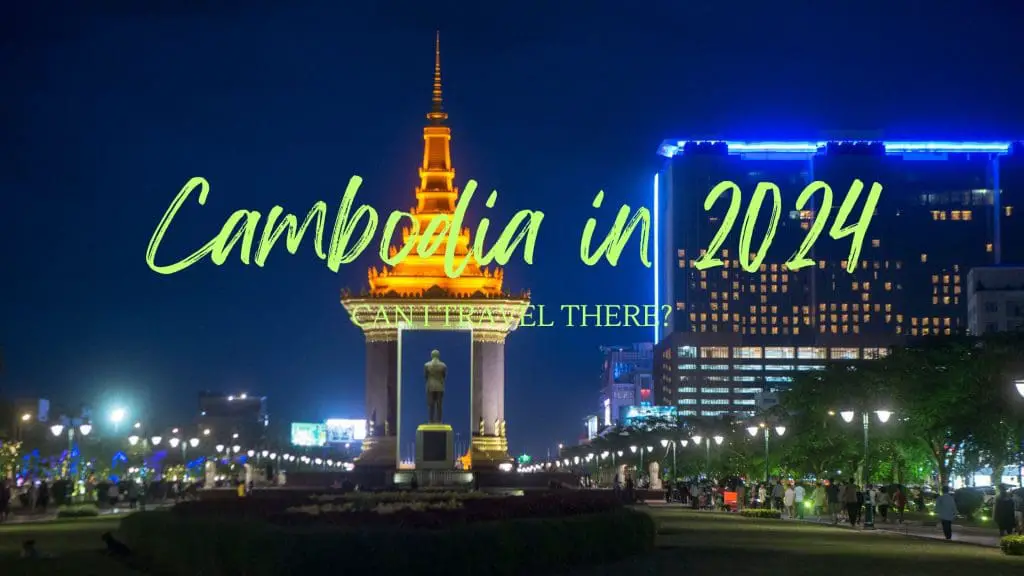
Health and Medical Information for Travelers
Travelers from the United States should prepare for different health standards in Cambodia. Knowing where to find reliable medical facilities is crucial for a safe trip.
Necessary Vaccinations and Health Precautions
Vaccinations for hepatitis B and Japanese encephalitis are recommended for most travelers to Cambodia. These vaccinations help prevent diseases that are more common in Cambodia than in the United States.
COVID-19 Vaccination and Mask Policies
The Centers for Disease Control and Prevention advises travelers to be fully vaccinated against COVID-19 before visiting Cambodia. While in the country, wearing masks in public places and practicing good hygiene can help protect against the virus. Policies may change, so staying updated with the latest guidelines is essential.
Addressing Common Health Risks: Malaria, Dengue, and More
In rural areas of Cambodia, malaria and dengue fever pose significant health risks. Travelers should use mosquito repellent and sleep under mosquito nets where necessary. Avoiding bites is key to preventing these diseases, more prevalent outside urban centers.
Accessing Medical Facilities and Insurance Coverage
Knowing the location of clinics and hospitals is vital for travelers in Cambodia. Medical facilities in cities like Phnom Penh are better equipped than those in rural areas.
Medical Insurance: Ensuring Adequate Coverage While Traveling
Travel insurance with medical coverage is a must for anyone visiting Cambodia. It ensures access to the best medical facilities without worrying about high costs. Always check that your insurance covers medical evacuation and major emergencies.
Hospitals and Medical Care in Phnom Penh and Beyond
Phnom Penh offers the highest standard of medical care in Cambodia, with several hospitals equipped for various treatments. Beyond the capital, medical facilities may be less advanced, but major towns and tourist areas like Siem Reap also have hospitals that cater to travelers.
Legal and Cultural Considerations
Understanding Cambodia’s laws and respecting its culture are crucial for a trouble-free visit.
Respecting Local Laws and Customs
Public places in Cambodia have their own set of rules. It’s illegal to disrespect religious symbols or sites. Travelers should remain mindful of local customs to avoid unintentional offenses.
Drugs, Surrogacy, and Child Abduction Laws
Cambodia has strict laws against drugs, surrogacy, and child abduction. Violations can result in severe penalties, including imprisonment. Travelers should be aware of these laws and steer clear of any activities that could be considered illegal.
LGBTQ+ Travelers: Safety and Legal Status
In Cambodia, same-sex sexual relations are legal, and the community is generally tolerant towards different sexual orientations. However, societal acceptance can vary, and LGBTQ+ travelers should be mindful of local attitudes to ensure their safety.
Navigating Dual Citizenship and International Child Abduction Issues
Dual citizenship and child abduction are complex legal issues in Cambodia. Travelers facing these concerns should seek consular assistance for guidance.
Legal Resources and Consular Assistance for US Citizens
US citizens in Cambodia can access a range of legal resources and consular assistance. The embassy offers support in legal matters, including issues related to visas, crime, and other legal concerns.
Practical Travel Information and Tips
For a smooth travel experience in Cambodia, familiarize yourself with practical information and tips, especially if you’re coming from the United States.
Transportation within Cambodia: From Tuk-tuks to Trains
Traveling in Cambodia offers a variety of options, from the bustling streets of Phnom Penh to the serene landscapes of rural areas. Tuk-tuks, synonymous with Southeast Asian transport, are ubiquitous in tourist areas, providing an authentic and flexible way to explore the cities. For longer distances, trains present a scenic route through Cambodia’s countryside, though services are limited. Whether it’s the convenience of a tuk-tuk or the adventure of a train journey, transportation within Cambodia caters to the preferences of every traveler.
Driving in Cambodia: Licenses and Road Safety Tips
Driving in Cambodia requires caution and adherence to local traffic laws. Foreigners can drive with an international driving permit coupled with their national license. However, navigating the roads can be challenging due to varying safety standards and practices different from those in urban areas in the West. Exercise caution, especially when driving at night, as lighting and road markings may be inadequate. Always wear a helmet when riding motorcycles or scooters, a common mode of transport among locals and tourists alike.
Utilizing Public Transportation Safely and Efficiently
Public transportation in Cambodia, including buses and minibuses, connects major cities and tourist areas efficiently. It’s a cost-effective way to travel, offering insights into local life. For safety, choose reputable companies and keep personal belongings secure, as crowded places can attract petty theft. Always have local currency available for fares, as drivers may not accept other forms of payment. With these tips in mind, navigating Cambodia’s public transportation can be both safe and enjoyable.
Connectivity and Communications
Staying connected in Cambodia is straightforward, thanks to widespread mobile networks and internet access.
Mobile Networks and Internet Access
Cambodia boasts reliable mobile networks covering major cities and tourist areas. Tourists can purchase local SIM cards at affordable prices, offering access to data and local calls. Wi-Fi is widely available in hotels, cafes, and restaurants, although connectivity may vary in rural or forested areas. To ensure uninterrupted access, consider renting a portable Wi-Fi device or purchasing a tourist SIM card upon arrival.
Electrical Outlets and Plug Types in Cambodia
Travelers should note that Cambodia typically uses Type A, C, and G electrical outlets, with a standard voltage of 230V. It is advisable to bring a universal adapter to accommodate different plug types. While urban areas and modern establishments are likely to support a range of devices, those venturing into more remote locations might encounter limited compatibility. Checking the voltage requirement of your devices before use is also recommended to avoid damage.
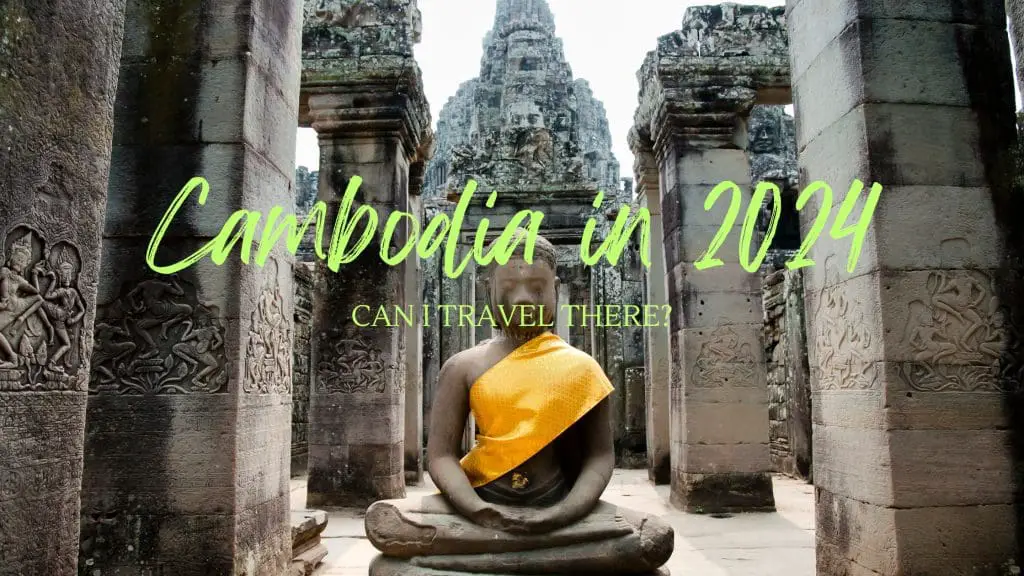
Cultural Insights and Local Experiences
Immersing yourself in Cambodia’s rich culture offers unforgettable experiences, from ancient temples to vibrant markets.
Dress Code and Behavior: Tips for Respectful Interaction
Respect for local customs is paramount when visiting Cambodia. Dress modestly, especially when entering temples and religious sites, covering shoulders and knees as a sign of respect. Politeness and courtesy in interactions go a long way, and learning a few basic Khmer phrases can enhance your experience. Remember to remove your shoes before entering someone’s home or a place of worship, following local tradition.
Food and Drink: Safety Precautions and Must-Try Dishes
Cambodian cuisine, known for its flavors and diversity, is a must-try. Street food offers a taste of authentic Khmer dishes, though travelers should eat at busy stalls ensuring food freshness. Be cautious with tap water; opt for bottled water instead. Don’t miss trying Amok, a traditional curry, or the fresh seafood along the coast, both showcasing Cambodia’s culinary richness.
Money Matters: Currency, ATMs, and Tipping Practices
The Cambodian Riel and US Dollar are widely used, with ATMs available in cities and tourist areas. While credit cards are accepted in hotels and upscale restaurants, carrying cash is essential for markets and street vendors. Cash advances are an option but come with high fees. Tipping is appreciated but not mandatory, reflecting satisfaction with service.
Preparing for Your Trip
Packing wisely and preparing for health and safety will ensure a smooth Cambodian adventure.
Travel Insurance: A Must-Have for Any Traveler
Travel insurance is crucial for any trip to Cambodia, offering protection against unexpected medical expenses, theft, and travel disruptions. Ensure your policy covers activities you plan to undertake, from motorbike riding to exploring ancient ruins. The Department of State recommends registering with their Smart Traveler Enrollment Program (STEP) for consular assistance in case of emergencies. Always check the latest travel advisories and health notices before departure.
Packing Essentials for Cambodia: A Checklist
Smart packing can make your Cambodian journey more comfortable and hassle-free.
Climate Considerations and Suitable Clothing
Given Cambodia’s tropical climate, lightweight and breathable clothing is advisable. Rain gear is essential during the monsoon season, while a sturdy pair of shoes will serve well for temple explorations. Sun protection, including hats and sunscreen, is a must, as well as insect repellent to guard against mosquito-borne diseases.
Health and Hygiene Supplies for Tropical Climates
Pack a basic medical kit with remedies for common ailments, such as traveler’s diarrhea, and any prescription medications. Hand sanitizer and wipes are handy for maintaining hygiene on the go, especially in areas where water quality may be questionable. Staying hydrated is key, so consider bringing a water bottle with a filter for safe drinking water.
Addressing Common Concerns and FAQs
Traveling to Cambodia brings up many questions, from visa on arrival to mobile connectivity. This section aims to address those frequent queries and provide clarity for travelers. Whether it’s about safety, using your phone, or understanding local customs, we’ve got you covered. Stay informed to make the most of your Cambodian adventure.
Is It Safe to Travel to Cambodia Right Now?
Travel to Cambodia is considered safe for tourists. Like other Southeast Asia destinations, petty crime exists but can be avoided with vigilance. Remote areas, while alluring, require caution. For beach resorts or visits to places like Kampong Thom, it’s advised to check the latest updates and travel advisories. Planning a trip for at least 2 weeks allows for a fuller experience and understanding of the country’s safety landscape.
Can I Use My Phone in Cambodia? Connectivity Tips
Mobile phones are a traveler’s best friend in Cambodia. With widespread network coverage, staying connected is easier than ever. Travelers can purchase local SIM cards for access to mobile data, making it convenient to navigate, translate, and communicate. Remember, turning on data roaming can lead to high charges, so local SIMs are the way to go for affordable connectivity.
Experiencing Cambodia’s Nightlife and Cultural Etiquette
Cambodia’s nightlife offers a mix of traditional and modern experiences. Understanding and respecting local customs is key to enjoying evenings out. From serene temple visits to bustling night markets, the country’s cultural etiquette emphasizes politeness and respect. Dress modestly, remove shoes when entering homes or sacred spaces, and always ask permission before taking photos. Embracing these practices enriches the travel experience and fosters meaningful interactions.
Adventure and Activities in Cambodia
Cambodia is a playground for adventurers and culture enthusiasts alike. From the majestic Angkor Wat to the untouched islands and beaches, there’s something for everyone. Whether you’re trekking through dense jungles, exploring ancient temples, or soaking up the sun on pristine beaches, Cambodia offers a blend of adventure and tranquility. Prepare to be captivated by the country’s rich heritage and natural beauty.
Exploring Cambodia’s Rich Heritage: Temples and Historical Sites
The temples and historical sites of Cambodia are windows into its soul. Angkor Wat, a symbol of the nation’s heart and history, invites exploration at sunrise for a breathtaking experience. Beyond this iconic temple, sites like Ta Prohm and the Bayon temple in Angkor Thom offer a glimpse into the past. Each stone and carving tells a story, making a visit to these ancient wonders a must-do for any traveler.
Outdoor Adventures: Beaches, Jungles, and Beyond
Cambodia’s natural landscape is as diverse as it is beautiful. White sandy beaches offer a tranquil escape, while the dense jungles are ripe for exploration. Adventure seekers can dive into the clear waters of the Gulf of Thailand or trek through the Cardamom Mountains. For those looking to connect with nature, Cambodia’s outdoors present endless opportunities for discovery and adventure.
Book some of your tours ahead of time for Siem Reap and Angkor Wat before you arrive. This will help with making sure the places you want to see aren’t overbooked or sold out before you get there.
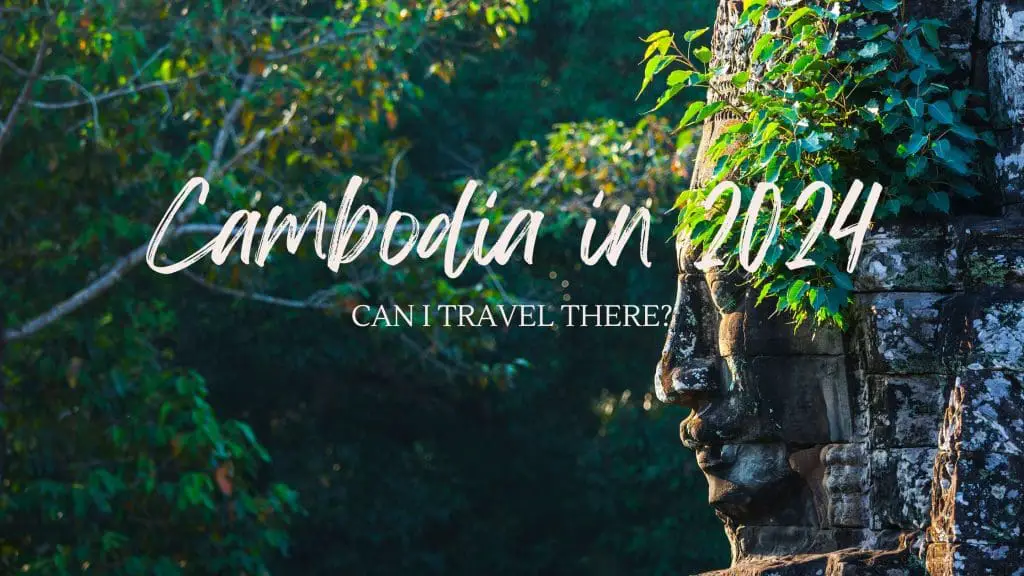
Returning Home: Exit Requirements and Procedures
Ensuring a smooth departure from Cambodia involves understanding exit requirements. Travelers should verify that their passport is valid for the duration of their stay and beyond. Checking visa conditions and adhering to entry and exit regulations is crucial. By staying informed and prepared, travelers can ensure their departure from Cambodia is as seamless as their arrival.
Ensuring a Smooth Departure from Cambodia
Check that your passport is valid.
Final Health and Safety Checks
Before leaving Cambodia, conduct a final health and safety check. Ensure you have all necessary vaccinations and are carrying any required health documentation. Reviewing travel advisories and ensuring personal safety measures are in place will contribute to a worry-free return journey.
Visa and Passport Validation for Exiting Cambodia
For a smooth exit, travelers must ensure their visa and passport are in order. Validating your entry and exit stamps can prevent any delays or issues at the airport. Keeping copies of all travel documents, including visa pages, is recommended for a hassle-free departure from Cambodia.
Final Thoughts: Making the Most of Your Cambodian Journey
Visiting Cambodia offers an enriching experience that combines the allure of ancient temples with the vibrant life of its cities. While there, it’s crucial to be aware of your surroundings, especially on secondary roads or when exploring off the beaten path. The risk of infection from tropical diseases makes it important to consistently wash your hands and use insect repellent. Enjoying Cambodia also means respecting its laws; for instance, foreign nationals should remember that illegal drugs carry severe penalties and card games in public can sometimes draw unwanted attention.
Public transportation is a convenient way to navigate the cities, but always exercise increased caution and be mindful of personal belongings. Should you decide to extend your stay, be aware that an entry stamp is valid for a specific period, and exceeding this can lead to a fine of 10 per day overstayed. In cases of excessive overstays, deportation proceedings could commence, prohibiting you from reentering Cambodia. Ultimately, engaging with the culture respectfully and adhering to the guidance of the Ministry of Foreign Affairs and International Cooperation ensures a memorable and enriching journey through Cambodia.
